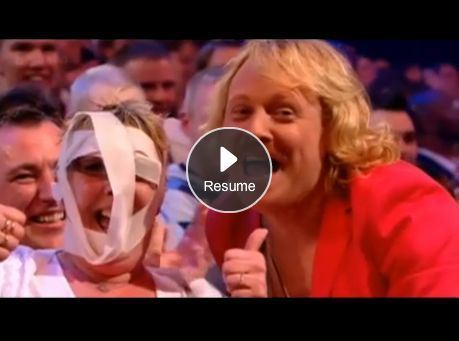Andrew Collins's Blog, page 39
April 20, 2012
A critic is everyone
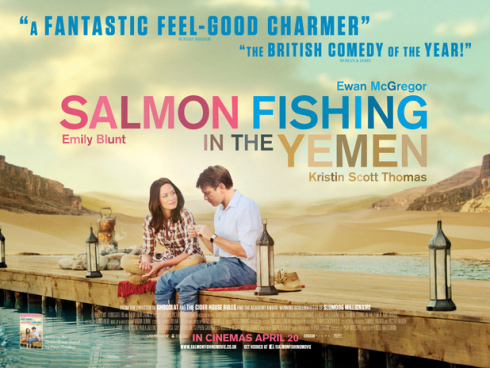
I wrote about this insidious new trend on the Radio Times website a while back, but today’s papers have added to my evidence file. Let’s reiterate first. In March, two ads for new films appeared within a couple of pages of each other in the London Evening Standard, and together, they almost formed a trend. The first was for The Best Exotic Marigold Hotel, already a hit, but understandably being advertised off the back of positive reviews, to ensure continued box office. These were some of the quotes on the ad:
“British film at its best … whoever you are, go and see this film!”
“The must-see film of the year!”
“A truly wonderful experience.”
Such notices are the sort that money cannot buy. The ad, which ran over half a page, was a colourful collage of such positive, gushing quotes. It was a very effective plug. However, if you looked more closely, you discovered that the reviews were not from critics, but members of the public:
Sheena, 55, Pudsey, West Yorkshire
Richard, 52, London
Anne, 51, Glasgow
At which point, I thought: “Genius.” Just like those TV ads where satisfied customers coming out of cinemas are buttonholed for their reaction. Not only was the ad saying: Forget the critics – this is what YOU thought of The Best Exotic Marigold Hotel, it gave the ages of the cinemagoers polled, not just underling the film’s older demographic but also subtly expanding upon it, so as not to limit its reach. The marketing department was shrewd enough to include people in their 20s, 30s, 40s, 50s and 60s. (I’m in my 40s and I enjoyed the film, although I would urge anyone over 50 to go, as it is squarely aimed at them.)
A few pages later, I saw an advert for Project X, a much less marketable comedy, in that it has no famous people in it (a deliberate policy, as it’s presented as a home video), but came from “the producers of The Hangover” – always a bit of a desperate connection. It, too, had some rave reviews:
“Absolutely brilliant! I didn’t stop laughing. A game-changing film.”
“One of the best movies ever, everyone should watch it.”
It also had some high star ratings from magazines like Nuts, Heat and Loaded (spotting a trend?), but the quotes quoted above were from … Twitter. The first was posted by @larawadey, who I looked up. She seems to exist – although in March her avatar was of a sunbathing woman whose head is cropped off, usually the mark of a pornbot (it’s now a picture of a lady boxing, with a head on) – she’s in London and as of the last time I looked she has 157 followers, but no other biographical information is forthcoming. Who is she? One assumes she saw Project X and was independently moved to rave about it.
The other quote was Tweeted by @TheBigQas – a London band “using music to spread the message of Islam” – who today have 135 followers, which might have risen as a result of the ad in March. Their quote is nonetheless being used to “spread the message” of Project X. Why should I care what they think? Equally, why shouldn’t I care? And why should I care what Anthony Lane in the New Yorker thinks? (I could answer that but it would take too long.)
Two questions arise.
One: are ads in which the reviews and quotes come from members of the public poised to oust the once-regal film critics from their ivory towers? The internet is, after all, an egalitarian democracy – sometimes deafeningly so – where everybody’s opinion seems as important as everybody else’s, and none carries more weight than another.
Two: why should we trust these quotes?
For legal reasons, let it be known that I’m not suggesting for a moment that the Best Exotic Marigold Hotel reactions aren’t from real people; I’m certain they are! If I’d stood outside my local cinema after seeing it and harvested quotes from my fellow patrons, I’m sure I could have filled two adverts with raves. (Some critics were a bit sniffy, some not, but it is, at the end of the day, a people’s film.) However, I find the Twitter comments more worrying. Anybody could start an account on the social networking site, give themselves a stupid name, and write a great review of Project X, which could then be passed off as genuine. Who’s to know? It’s impossible to check.
Again, I’m sure the two quotes used by Project X are 100% independent and genuine. But it’s a technique that’s wide open to abuse.
Today, there’s an ad for the film Salmon Fishing In The Yemen, a quirky, feelgood, adult-aimed comedy whose professional reviews have been fine, but so-so, but whose marketing is wall-to-wall raves. Again, as well as repeating nice notices from Woman & Home and Easy Living, they have polled real moviegoers, presumably ones who’ve been to preview screenings, which are not uncommon. Here are some:
“An incredibly funny and sweet film I have no hesitation in recommending it to everyone”
“Delightfully charming and laugh out loud funny”
“I loved it as much as Marigold Hotel.”
And here are the names of the non-critics who assessed the film:
Anthony Sharpe, Bournemouth, 34
Penny Philpott, Southampton, 54
Susan Hockey, Norwich, 61
Again, the ages. Again, the towns. Assuming these are genuine, which we must, how clever to give this much information about them. We don’t just know how old the citizen critics are, we know where they live! And one of them has had the marketing nous to compare Yemen to Marigold Hotel.
Now, you have to believe me, I am not against this new methodology because it threatens my job, as I don’t think of myself as A Critic, I just write about films and sometimes review them. (I review more films on my blog than I do for magazines, and if I’m not being paid, I say I’m not a professional critic.) It’s democratic to ask “civilians” to review films, although in the case of Yemen, they can’t have paid to see it, and must have seen it at a special screening, which suggests a freebie. I guess this makes them even more like professional critics, who do not pay either. (I pay to see films at the cinema more than I attend screenings, so once again, I am less of a critic, more of a punter.)
I still find it a bit odd. What do others think? Do you, as punters, want other punters to review films, just as customers star-rate books on Amazon, or restaurants, holidays, electrical appliances etc. on other websites? Does the seasoned film critic have any place in this democratic world? Should the Guardian pay Peter Bradshaw to review films when it could just ask members of the public to do it for free?
Perhaps – fingers crossed! – this new, democratic form of advertising will, in fact, return film critics to their ivory towers, where they can continue dispensing their opinions from positions of privilege but with verifiable credentials. You may not agree with my views on a film, but at least I’m real, and you can check my CV. How are we to contextualise Penny Philpott, Southampton, 54?

April 17, 2012
Tomorrow’s chip paper

I was very sad today to learn that the Northampton Chronicle & Echo is to cease publishing as a daily paper and go weekly, starting next month. I grew up with the Chron, and even though I left the town it is published in 28 years ago (heavens, that sounds like a long time when you write it down), I’ve enjoyed a symbiotic relationship with it ever since, always providing a quote or a contribution if asked, while the paper has always been very supportive of not just my commercial ventures, like books and gigs, but also the work I do with Thomas’s Fund, which of course is Northamptonshire-based.
When I was 15, my friend Paul’s Dad worked at the paper in the print room, and it was through this contact that Paul and I had some cartoons we’d drawn together published in the Chron. This was quite a thrill for a teenage boy. Indeed, we were photographed for the paper, and its rival the Mercury & Herald, when our cartoons landed us on the local news show Look East.
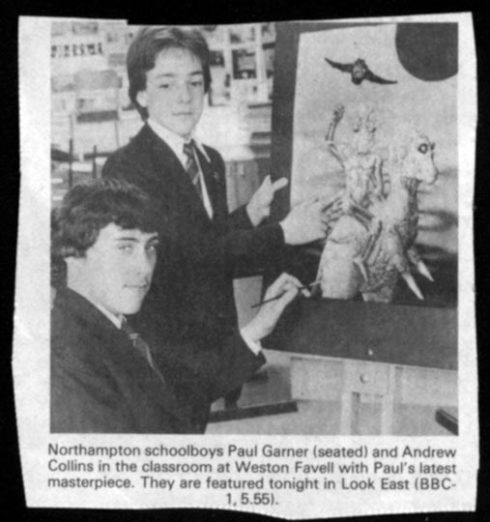
I guess it was my first taste of the media, and my first taste of nepotism, for which I remain inordinately grateful, and although my jobs in print have been in specialist publications, either music or film, my first job was at a newspaper, the NME, which gave me an early taste of the industry as it emerged from hot metal and adapted to new technologies. (Ironically, the NME was a weekly, with its frankly languid production schedule. Some of my colleagues, Steve Lamacq and Terry Staunton notable among them, had come from local papers, and I always considered that “proper” journalism. Putting out a daily paper!)
The story of the Chronicle & Echo, whose parent company Johnston Press is downsizing five of its local dailies (also: the Halifax Courier, Scarborough Evening News, Peterborough Evening Telegraph and the Northamptonshire Evening Telegraph), is one for our times. People aren’t buying newspapers the way they once used to before the internet and 24-hour TV news, and as such, the industry is in steep decline. I’m just glad the Chron isn’t being closed altogether, as has already happened to numerous local titles since the crash. Newspapers are having to go digital to survive, but as we know, advertising revenues for websites are way down on the sort of money you can charge for print ads.
I subscribe to the Guardian, which saves me money, and also, I hope, supports the print edition. I need it to survive, as I don’t have an iPad, or an iPhone, or any kind of electronic reader, and I demand an old-fashioned papery edition, please. It’s wise to subscribe to any paper publication you “take” regularly, as this kind of security helps the publishers to plan ahead and creates a better “story” for advertisers. (I spent the first ten years of my career in print, and it rubs off.)
Here is a photo of myself and my friend Paul with Sarfraz Nawaz, Northampton cricket star. It was taken for the Chronicle & Echo by the Chronicle & Echo at the offices of the Chronicle & Echo, where a reception for the team was laid on in 1980 after they’d won the Benson & Hedges Cup, and Paul and I were invited to attend as we’d drawn caricatures of the whole lot of them. It’s an event I look back on fondly. The closest I came to a Jim’ll Fix It, although I hated the turquoise suit Mum made me wear.
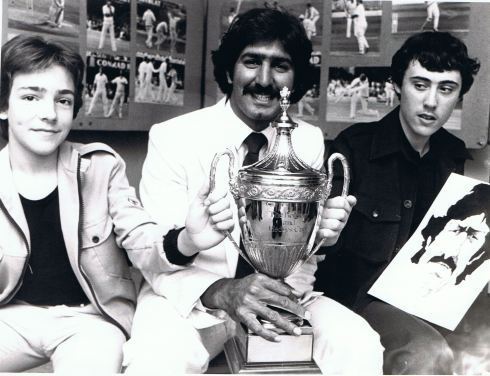
Of course, I now follow the Chron on Twitter. Follow them on @ChronandEcho, if, like me, you find local news about Northampton vitally important. The rub, of course, is that the paper makes no money from being followed on Twitter. Their website is here, and at time of writing, the lead story is about the potential collapse of Northampton-based Aquascutum, another local icon. The bad news is everywhere. (Stop press: since typing that, the Chron has broken the story that Aquascutum has indeed gone into administration. I found this out via Twitter.)
Apparently, redundancies will be in “single figures” across the reduced newspapers, but it’s a sad day nonetheless. The end of an era. The Chronicle & Echo, like many local papers, was a daily feature of my life in Northampton. My Dad had this letter printed in it, in 1980. We thought it was the coolest thing in the world at the time. I don’t imagine the young people of today would give much of a toss. They publish things all the time on Facebook and other sites – who needs a newspaper to do it?

I live in London and my local paper, the loathsome London Evening Standard (currently a Boris Johnson party political broadcast in paper form, wrapped in constant propaganda about the London Olympics), is given away for free. It is, literally, worthless. I miss pressing my 50p into the grubby hand of a vendor on my commute home, and I don’t even like the paper. I feel that somebody should play the Last Post on a bugle.








April 13, 2012
Warning: contains language
In the new Telly Addict, you will see and hear me reviewing the teatime debut of Keith Lemon’s Lemonaid on ITV1; the welcome second series of Twenty Twelve on BBC2; the last of Talk At The BBC on BBC4 (which I hope they repeat soon); and the final season of Eastbound & Down on FX.
I did watch Derek last night on C4, but it was too late to include it, as I have to deliver my script on a Thursday and record it first thing on Friday. And I was out last night. I may assess it next week, although I don’t mind telling you in advance that I don’t feel, as a one-off, that it earned enough of our sympathy to expect us to be sad about a character being sad after such a short time. And did he have to have that hairstyle?








April 10, 2012
All around the world Pt 3
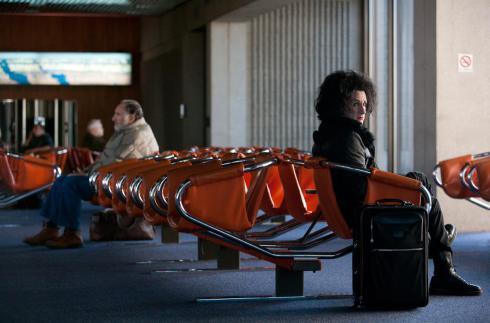
Hey, never quite made it to the proposed sixth film in our mini world cinema film festival, but yesterday lunchtime was made more interesting by This Must Be The Place, the first English-language and part-Irish-part-American-set film by Paolo Sorrentino, whose urbane and surprising hitman drama Consequences Of Love I remember falling for a few years ago. (The rest of his admired back catalogue is to come.) Two things to say about this curious picaresque about a retired Robert Smith-style Goth-pop star (Sean Penn) returning to America on the occasion of his estranged father's death: one, it is less than the sum of its parts, and two, it was, for me, tainted by the woman laughing her head off all the way through it at the cinema.
Let's deal with my artistic complaint first. I love films like this, in which oddball characters go on a journey across unfamiliar terrain. The fact that it begins in Dublin, a city I know well, makes it all the more interesting, and although it appears that the Irish part is a case of the funding tail wagging the narrative dog (I may be wrong, but this is an Italian-French-Irish co-production), I think Sorrentino made a decent fist of capturing suburban Irish life, helped by the use of local actors. Countless European directors, successful on their own turf, have travelled to America to have a crack at cinema's most iconic landscape. But something is lost in translation. The director and his co-writer Umberto Contarello have, presumably, written an Italian script about an American living in the Republic of Ireland who travels across New Mexico and Utah to track down the German tormentor of his Jewish father at Auschwitz, and had it translated into English. This gives the dialogue an unreal quality, which might not be a fatal flaw, but in this case, is.
Sean Penn's performance is deliberately mannered: squeaky and slow and childlike. (He's not Robert Smith, but he's visually modelled on him, and Smith is quite a childlike man in voice and attitude.) This will alienate as many people as it captivates. I didn't mind it, but is sets up a barrier between audience and protagonist that's pretty much insurmountable. Real life goes on around him – as indeed it might if you were a cosseted rock star living in a castle for tax reasons – and his return to the US is supposed to be awkward and difficult, as he and it are as estranged as he and his father. But, the whole thing ends up a series of beautifully-shot and sometimes originally conceived episodes and scenarios. There's nothing to glue it together bey0nd Penn's freaky turn. The Irish bit and the American bit don't fit together, and even though he's on a quest, the individual elements of that quest don't fit together either. There's no momentum. No jeopardy. It "looks at" quirky Americana, but make no comment about it. Some of the people he meets are warm and welcoming, others are not, but they are treated exactly the same. To say there's zero character development is true, but also irrelevant, as Cheyenne – which is what the rock star is oddly called – has no character. And I say that with huge admiration for Penn. I think in this case, it's the director who's at fault.
A shame, really, as it's a potentially powerful story, with an exiled rocker coming face to face with the Holocaust. But instead it's merely trite.
And then there was the laughing woman in the cinema. I do not blame her for laughing. It's good to laugh. It's good to enjoy yourself. And how refreshing to hear someone audibly enjoying a film in this emotionally straightjacketed country! I don't hold with the idea that "serious" cinema must be greeted with silent, ruminative, beard-stroking reverence. (I laughed at a couple of the gags in Headhunters.) But this person seemed to find the very sight of Cheyenne funny, and thus laughed pretty much every time she saw him, or if he spoke. Maybe Sorrentino would welcome this extreme reaction, and actually, who cares whether he does or not, it's for us to decide how to react to a film, not the director. I will observe though that the rest of the patrons in the cinema were largely silent, except for the occasional audible smile or snort. I smiled at many of the things Cheyenne said, but for me, it wasn't laugh-out-loud material. It's a rather sad film, about a sad man, going through a sad experience. The problem here is clearly not the laughing patron's, but mine: I just didn't get what she was laughing at. Now, it was a lunchtime showing, so I'm kind of assuming she wasn't high or drunk, but it was that kind of laughter. I do no blame her for this – as I say, the fact that it bothered me is my issue and not hers – but I can't lie: I did get on my nerves, and may have affected my enjoyment of This Must Be The Place.
And it might have simply been the film.
My favourite films of this rich and unusual Easter weekend, then? Le Havre and Headhunters. Victory to France, Finland, Germany and Norway!








April 9, 2012
All around the world Pt 2
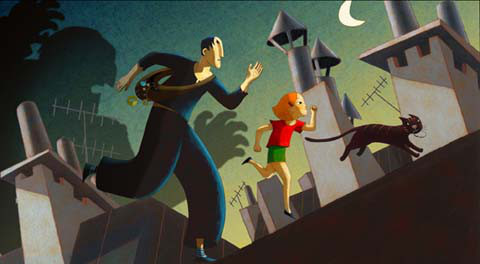
The Easter foreign film festival continued yesterday, with two more from the Curzon. First, A Cat In Paris, which is the Oscar-nominated French animation whose actual title is Un Vie de Chat (A Cat's Life), which is not the same thing at all, but hey, they've got to sell it to a non-French-speaking audience. Unfortunately, this also means re-dubbing it in English, which was an otherwise sweet family film's downfall. Hey, I'm a cat person, as you are no doubt tired of hearing, and as such I was very happy with the way the cat was animated by Alain Gagnol and Jean-Loup Felicioli (neither of whom seems to have any past form – maybe this was their debut animation).
The way le chat "spoke" (ie. miaowed and purred and hissed) was realistic, and despite the stylised animation, which rendered human bodies and faces as 2D geometric shapes, shaded by a Marc Chagall-like "pastel" shadow effect, our feline protagonist was made fur and flesh in a convincingly catty way. However, it was the humans who ruined it. The story, about a little girl rendered mute after the death of her policeman father at the hands of a dastardly villain who finds her voice when she discovers that her cat is leading a double life with a lithe and seemingly benign burglar, may be centred around the pet, but it is largely populated by people who are little more than, well, caricatures and archetypes. They are not without style (I liked the dainty way their feet were animated), but the humans are sucked of all charm by the woeful quality of the English voices.
I can only hope the French dialogue sounded better in French. (Maybe the French original was the one that was circulated to the Academy, hence its surprise Oscar nomination?) In English, in those voices, it was either insincere, melodramatic or comic. The lead characters were American. Why? In Paris? There's the Eiffel Tower! There's Notre Dame! The criminal gang has an assortment of accents, ranging from idiotic Cockney, via humorous German to a truly arse-quakingly bad Texan. I wonder if these voices were supplied by French voiceover artists "doing" English? If so, why not have them all speak in English but with 'Allo 'Allo-style "Fronsh" accents? It would have made more sense.
So, ultimately, a nice, 70-minute visual experience – with some really beautiful, jazzy, funky, bendy, asymmetric rooftop backdrops – almost killed by bad dubbing. Still, the cat was nice.
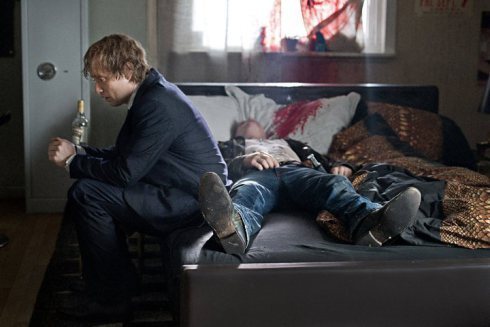
A much better bet all round was Headhunters (or Hodejegerne), the first cinema adaptation – I believe – of a novel by Norwegian thriller writer Jo Nesbø, whose work seems to have taken off in the wake of the success of Steig Larrsson. Though I am not a reader of thrillers, or novels actually, I know that Nesbø is well known in Scandinavia for a series of novels about recurring characters, but Headhunters is a stand-alone story.
As directed with style, pace and wit by Morten Tyldum (who appears to have very little in the way of form, but will be in demand now, one guesses), Headhunters is a bold, bloody, brutal but deadpan-comedic thriller about a recruitment exec who compensates for his short stature by stealing art and paying for the high life he believes his trophy wife requires in order to stay with him. The actor who brings him so brilliantly to life, and without a hint of vanity, is Aksel Hennie, who has the look of a young Christopher Walken and Steve Buscemi about him, and who must now be in line for some juicy Hollywood parts.
The book is already being made into an American version, although as Philip French notes, Hollywood will be hard pushed to recapture the unique atmosphere of the original. It is, to be blunt, so Scandinavian. The architecture, the forestry, that all pervading crisp, clean, grey melancholia … if you liked Danish imports The Killing and Borgen, and have a penchant for Swedish cinema ranging from Bergman to Moodyson, as I do, you'll know what I mean. I remember seeing the Norwegian original of Insomnia, and it forever affected how seriously I could take the otherwise well-made American remake.
Anyway, it's not about national cinema, it's about a fantastically fast-paced unfolding nightmare, which is leavened throughout with scatalogical schlock and dry wit (including, at one insane stage, a tractor chase, with a certain ghoulish detail that I won't spoil). As a story, packed with twists and turns, it has "novel" written right through it, and the outcome is both surprising and one of those that has you slapping your own forehead and going, "Of course!"
A mealy-mouthed two-star review in the Guardian had me worried, but I think Paul MacInnes who reviewed it was having a very bad day when he saw it. Headhunters is bloody great, and had the audience in the Curzon chuckling and wincing in equal measure. Go and see it before the Americans misidentify what made it great and just do a fast-paced thriller version without the septic tank bit.
This – German-Norwegian – and Le Havre – Finnish-French – have been my favourite films of the festival so far. Now it's off to Soho for This Must Be The Place – Italian-French-Irish – and Into The Abyss – American, but by a German director.








April 8, 2012
Please tell us why you had to hide away for so long
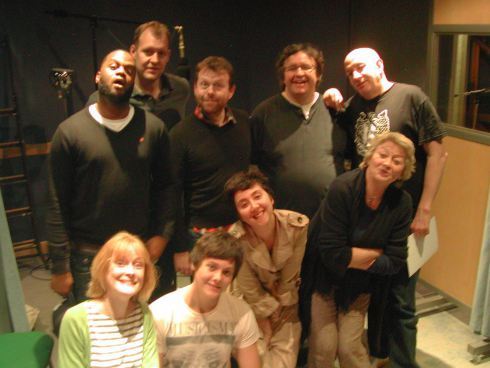
Just to say: Mr Blue Sky returns for its second series on BBC Radio 4 tomorrow, Easter Monday, at 11.30am – the same slot as last year – whereafter it will be on iPlayer. We have edited five of the six episodes, and they're sounding good, in terms of performance and production, so thumbs up to the amazing cast and to producer/script editor Anna, studio director Wilfredo and editor Rich (who also provides Harvey's terrible piano playing, which of course you have to be brilliant at the piano to fake). I'm hopeful anyone who liked Series One will enjoy Series Two. There's a definitive entry for the show on the British Comedy Guide, so you'll find the cast and crew etc. there.
It being a second series, it's not easy to get previews in the papers, so I'm very grateful for the ones we have had. Radio Times were gracious enough to let me write about it as part of a broader piece about family radio; we also had a positive write-up in The List, Boyd Hilton was kind enough to give it four stars and a recommendation in Heat, and Stephanie Billen managed to wangle it a pick of the day for radio in today's Observer (which doesn't seem to be online, but she called it "likable", which I can go with).
I'm not expecting the nation to stop what it's doing and gather round the radio at 11.30 tomorrow morning, but I would appreciate your thoughts as and when you catch up with it, if indeed you do. Mr Blue Sky remains the thing of which I am most proud of, professionally, as it's mine, and if it succeeds or fails, I have to take the rap.








All around the world
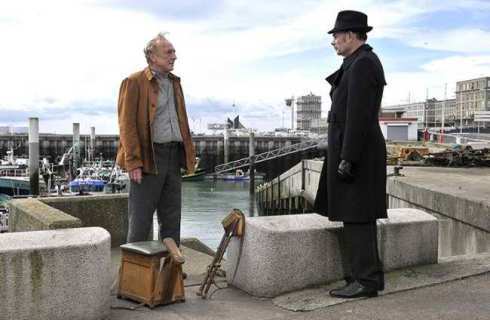
I may have been working on Good Friday, but with Mr Blue Sky now edited and ready to go, I had a mini foreign film festival planned for the three-day Easter holiday. Yesterday, Day One, we saw Le Havre, a French-Finish comedy-drama, and Once Upon A Time In Anatolia, a Turkish police procedural. Le Havre is another one of those films, like The Kid With A Bike, that has been too heavily trailered at the Curzon chain, which really can start to erode the experience of seeing the actual film. I certainly knew what to expect from the story, which is about an old French man befriending and sheltering an African boy. Written and directed by the Finnish auteur Aki Kaurismäki, greatly revered but whose back catalogue has sadly passed me by (it is only in the last 15 or so years that I've been obsessed by foreign cinema, so I still have a lot of catching up to do), the style of Le Havre appears to be his trademark. The drama is stilted and staged, with characters speaking, or declaiming, in aphorisms, and often framed so that they face the camera. (This makes it very easy to cut up into a trailer.)
I was captivated by it. Un homage to the style of Robert Bresson, it tells a disarmingly simple story – man takes in illegal immigrant while wife is ill in hospital – but imbues it with all sorts of meaning. The acting is not naturalistic, in that it feels "acted", but at the same time, Le Havre feels utterly authentic. Kaurismäki uses real locations – specifically, the dour, ancient docks of the port itself, and the shanty-like housing around it – but gives them a hyperreal sheen, using neon signs and bursts of colour. The very fact that the run-down cafe bar that acts as a hub to the dockside community is called "La Moderne" is a brilliant visual joke. It has been described as a "comedy" but most of the laughs are in the trailer; the rest is actually rather grave. But that's not a complaint. In the main roles of man and boy, André Wilms and Blondin Miguel are superbly affecting (the latter in his first role, apparently a non-actor, but all the better as a boy who escapes from a shipping container full of Senegalese refugees and finds himself adrift and on the run in a foreign land), while Finnish actor Kati Outinen brings deadpan pathos to the dutiful but possibly dying wife Arletty. Incidentally, this character's name, a direct nod to the iconic 1940s-50s French actress, is typical of Kaurismäki's playfulness. Wilms' character is called Marcel Marx; a nosy neighbour is played in cameo by Jean-Pierre Léaud, the 14-year-old star of 400 Blows, another film about a boy on the run from the police; and I'm sure there's other stuff I didn't spot.
It's a lovely film, moving and witty, and you can taste the salt of the sea air.
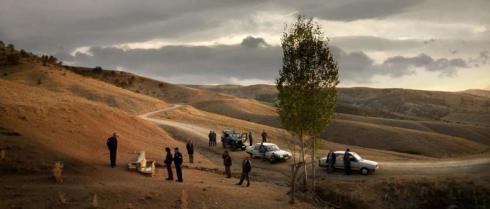
I had high hopes for, but less foreknowledge of (I think I saw the trailer once), Once Upon A Time In Anatolia, a film heaped with praise from a director already lauded, Nuri Bilge Seylan. I saw his film Uzak a few years ago and thought it was phenomenal, a massively understated look at the strained relationship between two brothers in Istanbul, so that was a good start. But I couldn't really go on with this one. I read that it's "Checkovian" and is as filled with references to Checkov as Le Havre is with references to French cinema, but I know little of the Russian playwright, so this is no help to me. I liked the look of Anatolia, especially the beginning, which takes place at night, during the police search for a body in the steppes of rural Anatolia, and where the action is lit pretty much exclusively by headlights. It's hard on the eyes, I warn you now. But it gives these scenes a naturalism that puts you right there at the centre of the work. I also enjoyed the banter in the car between the various officers; it had a Tarantino quality to it, with mundane chit-chat about buffalo milk yoghurt.
However, somewhere along the road, the film lost me. The search for the body goes on and frustratingly on, with no sign of the sun coming up at any point, and in fact, that seems to be the intention of the film: to show how boring police work can be. The party stops at the house of the mayor of a tiny village that only just about has electricity, and they eat a lovely-looking feast, then sort of doze off when the power cuts out. There's more conversation, some of it mundane, other stories more meaningful, and then, finally, they find the body and it's the next day. The film climaxes, if that's the word, with an autopsy, about which I will reveal nothing. This film is 158 minutes long, and it feels like it. I don't mind admitting I fell in and out of a sort of half-doze in parts, and that's not good, is it? However, I appreciated the humour in the writing, and I'm sure it's an authentic portrait of the ultra-male world of the Turkish police. There is only one significant female character, and she is the daughter of the mayor, who appears as a spectral vision, lit by a lamp, serving tea to the men; I'm sure this means something profound, but I was as tired as the men were at this point.
Ultimately, Once Upon A Time In Anatolia just didn't grab me. It made me want to watch Uzak again, though.
Right, what's next? Ah yes, A Cat In Paris from France, and Headhunters from Norway. I will report back tomorrow.








April 5, 2012
Anything good on?
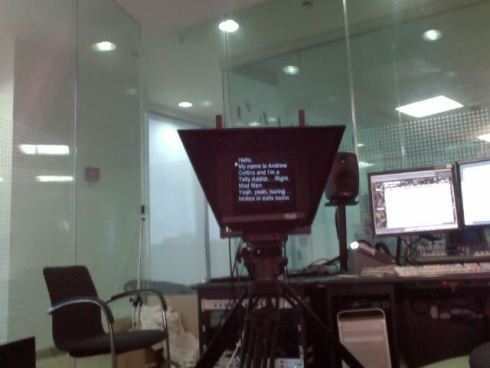
This week's Telly Addict is up a day early due to it being Good Friday tomorrow. In it, I am assessing Game Of Thrones on Sky Atlantic; Words of Captain Scott on ITV1; Damien Hirst: First Look on C4; and Silent Witness, season 16(!) on BBC1.
It was lovely to see the Guardian put us on the main homepage last week, and with a nice new picture they took of me inside an old telly. I dig that.
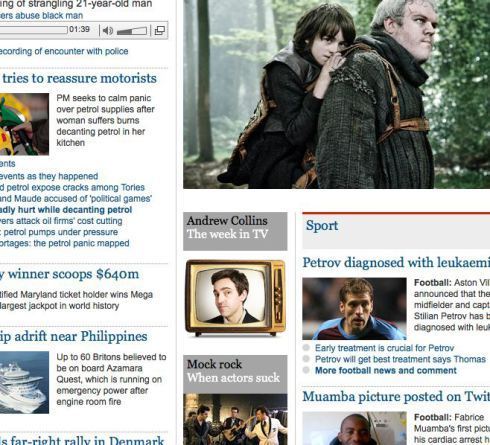
Oh, and at the top is a shot I took this morning of what it looks like to be me, doing Telly Addict. Exclusive! Have a nice Easter, even if you are not a Christian.








April 4, 2012
Great, Scott
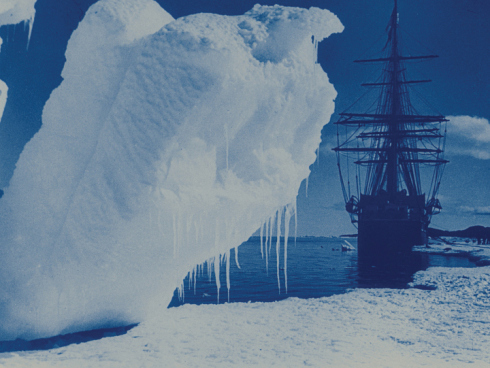
What a proper treat at the Curzon Chelsea at the weekend: The Great White Silence on the big screen. This is the 1924 film assembled from the pioneering footage and photographs taken by Herbert Ponting on the 1910-1913 British Antarctic Expedition. Just as we must by law always refer to the expedition as "ill-fated", so we must describe the BFI's 2011 restoration of the film to full glory as "painstaking."
According to a title card at the beginning of this graceful and affecting 108-minute silent epic, this is the film as it was originally intended for exhibition, including the coloured tints, which seem incredibly modern. I don't know for a fact, but I imagine a decade passed between Ponting making his photographic record of the expedition's first year and its theatrical debut because the tragic end of the adventure made it too raw for public consumption. Ponting spent 14 months with Captain Scott and his doughty, pipe-smoking, mostly ex-Navy crew – plus Siberian ponies, dogs and one ship's cat, with the unfortunate name of "Nigger" – and returned to England on the ship Terra Nova while the exploration parties headed up the Beardmore Glacier, across the Ross ice shelf, and, in the case of Captain Robert Falcon Scott, Captain Lawrence Oates ("I could be some time"), Lt. Henry Bowers, Edward Wilson and Edgar Evans, to their horrible, tented demise.
Although the whole enterprise whiffs of the glory of the Empire and a society hideously patriarchal enough for King George to urge "every British boy" to see Ponting's film, the tang of the very early 20th Century gives The Great White Silence a personality that's at once foreign, but no less endearing for that. The explorers' apparently unflappable faith in God is quaint in itself; according to their letters and diaries (brilliantly brought to life by Dougray Scott, Max Irons, Alistair McGowan and others in ITV1′s Words of Captain Scott), every one of them felt that God was their protector, and this helped them through might have been an unbearably difficult time and gave them comfort in their final days and hours.
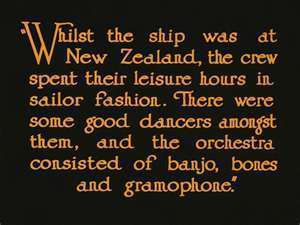
Ponting's own narration – provided via intertitles as above – is alive with jolly, boys'-own derring-do, and although the tale has a tragic outcome, the first year is one of wide-eyed awe at the sight of penguins and seals and killer whales (none of which would have been seen moving about by most people in 1924, so you can easily share their wonder). There's footage of the ship's cat doing tricks on the ice, and more of the crew playfully chasing penguins around. Much of this mid-section is effectively a prototype nature documentary, and it's astonishing how blase Ponting is in explaining that an Arctic skua has been chased off her nest so that he can get a close-up of her catching eggs. Never mind David Attenborough sneaking in footage of polar bears from a German zoo! If he'd been making the film in 1912 he could have shot the mother in order to get a decent view. (At one point, as a killer whale is about to eat a baby seal, the crew harpoon it in order to "save" the seal.)
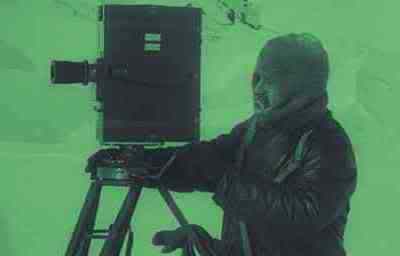
The Great White Silence is available on DVD, and although I can't recommend seeing it on a big screen highly enough (Chelsea were showing it to mark the expedition's 100th anniversary). Details of the extras-packed DVD are here. I would also recommend last week's excellent documentary on ITV1, Words Of Captain Scott, in which actors of the calibre of Dougray Scott, Max Irons, Alistair McGowan and The Killing's Lars Milkkelsen (guess who he plays) read from diaries and letters, intercut with some of Ponting's footage and equally stunning footage of Amundsen's luckier expedition. It's still available on demand. I'd never expected to be so taken with this story, as familiar as it is, but thanks to this film and this programme, I am.
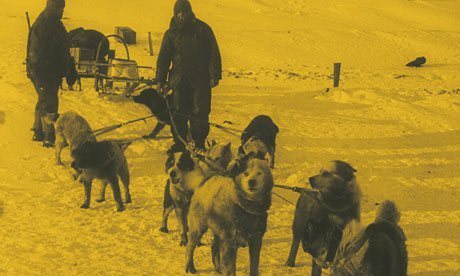








April 2, 2012
On your bike

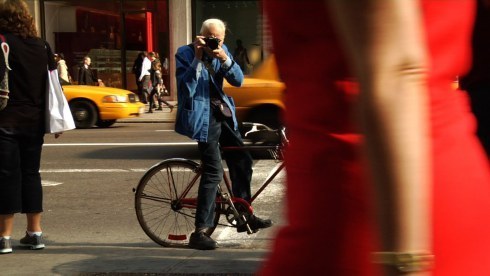
A kid, a woman, and an old man, on bikes. Two very different films at the Curzon, which I failed to get round to reviewing last weekend. (I seem to recall a time when I would review every film I saw within a day of seeing it. What happened to that halcyon age? All work and no play etc.) So, The Kid With A Bike is a lovely Belgian film from the Dardennes brothers, whose work is constantly carried aloft at shoulder height by Sight & Sound but with which I admit I am not familiar. They seem to be interested in small-scale human stories, of which this is one, and it comes in at a lean 87 minutes: a boy, Cyril (Thomas Doret) abandoned by his selfish father is fostered by a Samaritan-like hairdresser (Cécile De France) on a nondescript but not unpretty suburban estate (it was filmed in Liège). The story follows the difficult and painful adjustment from a utopian parental model to a trickier surrogate, and yet it avoids all the obvious narrative traps.
I'll be honest, as a regular at the Curzon, I think I have seen the trailer for The Kid With A Bike more than any other in my life. (The chain has a reasonably limited, niche-aimed bill across a handful of cinemas, and understandably likes to trail early.) By the time I finally came to see it, last weekend, I could almost literally recite the trailer. As such, the basic set-up of the story was well known to me. But although Cyril gets into a few scrapes, and bad company, the film sidesteps complete predictability. As intuitively, almost miraculously played by first-timer Doret, Cyril is neither angel nor devil; he has an adult head on 12-year-old shoulders, but he's not precocious. This is as much a tribute to the writing and directing as the acting. De France is naturalistically captivating, too, and the sparing use of music – just one cue from a Beethoven concerto – is startling. I need to get some more Dardennes into my life. Our education never ends.
To the second film with heart in this ad hoc double bill, then. The other kid with a bike is 83. Bill Cunningham New York is a genuinely life-affirming documentary that forms a piece with last year's timely Page One: Inside The New York Times, featuring, as it does, the paper's long-standing fashion photographer Cunningham, who has been cycling and walking around New York since the late 70s, snapping street style as modelled by ordinary citizens, and enjoying every single minute of it.
The seniors who have been delighted by The Best Exotic Marigold Hotel should seek this out, too. It is a celebration of age and experience. Cunningham, a camp, infectiously upbeat loner and workaholic (not that he sees what he does as work), lives in a tiny studio above Carnegie Hall – a bolt-hole rammed full of filing cabinets from which our man is cruelly evicted during the filming of the documentary – and seems entirely undimmed by old age. He welcomes director Richard Press into his life, and proves anything but a fossil from a previous age. He calls everyone "child" or "kid" and that includes people in their 60s and 70s, and spreads sunlight as readily and tirelessly as he spreads flashlight.
There is a sequence towards the end of the film – another short one, at 84 minutes – during which he opens up about his private life, or lack of one, and about God, and we see tears very briefly, but he hoovers these up and the smile is soon back upon his face. It's the kind of film where you expect its subject's dates to come up in a caption at the end, but Cunningham lives on. Surely he must be immortal. (He seems to have achieved this by not allowing others into his life, and yet he's been a social butterfly all along. That's his secret: be nice to everybody and retire to a fold-out bed, alone, each night. Oh, and take the filling out of sandwiches, apparently, and don't accept a free drink.)
My guess is that Bill Cunningham New York will turn up on TV sometime soon. Keep an eye out for it.








Andrew Collins's Blog
- Andrew Collins's profile
- 8 followers


